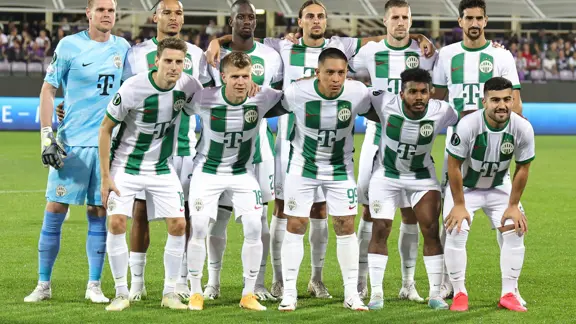News
Hungarian player union celebrates new standard player contract that complies with minimum requirements

- Hungarian player union HLSZ makes positive changes to standard player contract
- Two provisions removed, including possibility to unilaterally reduce salary if player is sent to second team
- Amendments a result of collaboration between European stakeholders and domestic social dialogue
Hungarian player union HLSZ actioned crucial amendments to its standard player contract that have improved the rights of professional footballers in the country.
As part of a social dialogue in Hungarian football, and after requests from HLSZ, the Hungarian Football Federation (MLSZ) decided to remove two controversial provisions from the standard player contract. One allowed clubs to unilaterally reduce a player’s salary up to 50 percent in case of relegation, while the other arranged that a club could unilaterally decide to reduce a player’s salary up to 50 percent when the club decided to send a player to the second team.
Gabor Horvath, the union’s general secretary, welcomes the revised standard player contract, which has been in force as of 1 January 2024.
“This is a very important achievement for us,” Horvath told FIFPRO. “We have often been criticised that the standard player contract in our country was not good.
"Through the years, we have tried to change this and now we can finally say that the Hungarian standard player contract is fully in compliance with the minimum requirements on standard player contracts, as laid down in the agreement signed by European stakeholders, including FIFPRO Europe, UEFA, the ECA and European Leagues.”

Article 47, which allowed clubs to unilaterally reduce players’ salary when sending them away from the first team, was very problematic, according to Horvath. “Players were told that starting tomorrow they couldn’t train with the first team anymore but would have to train with the second or third team, and that their salary was reduced by 50 percent. The clubs could simply decide this unilaterally as a sort of sanction. This could last until the end of season or could lead to a player leaving the club.”
The provision is against Hungarian labour law and against jurisprudence of the FIFA Dispute Resolution Chamber (DRC) and sports tribunal CAS. The FIFA DRC deemed it “potestative” and “abusive” in various cases.
To realise these amendments to the standard player contract, the Hungarian union invoked the help of FIFPRO Europe, which involved UEFA and the ECA, as both have respective members in Hungary.
“We couldn’t have done this without the help of FIFPRO Europe and the European stakeholders,” Horvath said. “We had tried since 2018 to change the standard player contract but were unable to arrange this with the federation ourselves.
“With the help of FIFPRO Europe, who involved UEFA and ECA, we could finally discuss this with the federation and with some clubs. We had a couple of meetings involving representatives from the domestic and European stakeholders, in a friendly atmosphere, and it was clear to all parties that these two provisions had to be addressed, which made the federation decide to remove them from the standard player contract.”
HLSZ thinks that the collaboration with the European stakeholders will also be beneficial for the union and Hungarian football in the future.
“It is a good example of the power of the social dialogue,” Horvath said. “Being part of a strong international umbrella organisation, that has good relationships with UEFA, the ECA and European Leagues is very beneficial. Of course, we remain committed to any discussion with our domestic social partners, but it is good to know that, if necessary, we can easily involve FIFPRO to help address these issues.”
